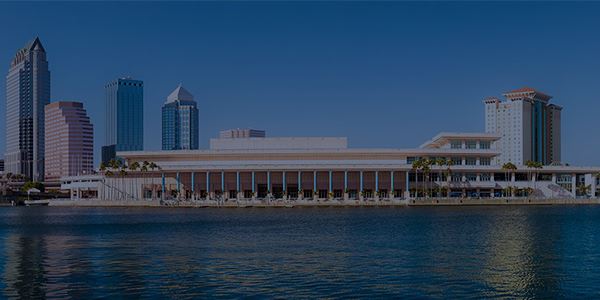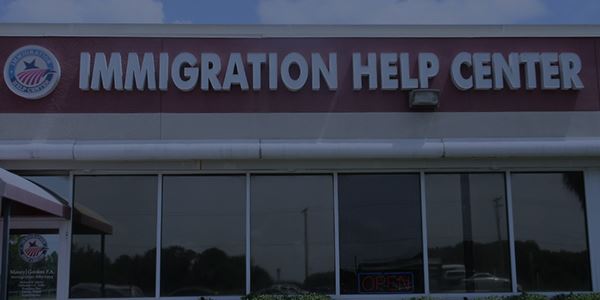The Violence Against Women Act (VAWA) provides critical protections for victims of domestic violence, allowing eligible individuals to self-petition for immigration benefits without needing their abuser's consent. This process offers a path to safety and independence for those married to U.S. citizens or lawful permanent residents. Understanding the criteria, rights, and application process for VAWA self-petitioning is key to successfully navigating this opportunity.
Understanding VAWA Self-Petitioning
Definition of VAWA Self-Petitioning
VAWA provides certain victims of abuse the right to independently seek immigration benefits through self-petitioning. This important step allows individuals married to U.S. citizens or lawful permanent residents who are subjected to abuse to apply for legal status discreetly. The self-petition process is especially empowering, as it bypasses the need for the abuser's cooperation or knowledge. Abuse can take many forms, including physical, emotional, or psychological harm. This procedure underscores the U.S.'s commitment to protecting victims and providing a pathway to both justice and independence for those trapped in harmful relationships.
Eligibility Criteria for VAWA Self-Petitioning
To qualify for a VAWA self-petition, applicants must be married to a U.S. citizen or lawful permanent resident who has subjected them to abuse, or they must be the abused child or parent of such an individual. They must provide evidence they lived with the abuser at some point and demonstrate good moral character. Abuse is broadly defined to encourage abused individuals to come forward, recognizing it takes various forms beyond physical violence. Supporting evidence may include affidavits, reports, or testimonies. Meeting these criteria enables applicants to step forward and seek legal and personal relief.
Benefits of Self-Petitioning Under VAWA
VAWA self-petitioners gain access to critical resources and protections, including eligibility for deportation relief and work authorization. Approved applicants can pursue lawful permanent residency, allowing them to stay in the U.S. legally and support themselves financially. Over time, they may even apply for U.S. citizenship, providing long-term security. This process ensures victims of abuse can establish a safe, independent life away from harmful circumstances. The combination of legal status and work eligibility can make a meaningful difference in the petitioner's ability to rebuild their future.
The Application Process for VAWA Self-Petitioning
Preparing Your VAWA Self-Petition
A strong VAWA self-petition requires detailed documentation like proof of the relationship to the abuser, evidence of shared residence, and records of abuse, such as medical reports or police filings. Affidavits from the victim, family, or friends can strengthen the case by illustrating the harm and its impact. Thoughtfully prepared personal narratives help outline the circumstances of abuse with clarity and emotion. Applicants should gather this documentation methodically to ensure the petition is compelling. A well-prepared petition is instrumental in convincing USCIS of both the abuse and the need for protection.
Filing the VAWA Self-Petition
Filing a self-petition requires completing and submitting Form I-360, supporting documentation, and applicable fees to USCIS. To avoid delays, petitioners must ensure their submission adheres to USCIS guidelines and is error-free. The evidence compiled must clearly demonstrate the petitioner's eligibility and the abuse endured. Petitioners should be ready to provide additional information if requested. A thorough and accurate filing process is key to navigating this vital immigration step successfully.
Common Challenges and Mistakes
Common errors arise from insufficient evidence or incomplete forms, leading to processing delays or denials. Failing to adequately document the abuse or an inability to respond to USCIS requests for additional evidence is problematic. Overlooking submission deadlines is another common issue for petitioners. Recognizing these pitfalls and addressing them proactively improves the chances of approval. Awareness and preparation are essential in avoiding unnecessary complications in the process.
Legal Support and Resources for VAWA Self-Petitioners
Finding Legal Assistance
An experienced immigration attorney can support petitioners in preparing and submitting robust VAWA self-petitions. Pro bono legal services or nonprofit organizations devoted to serving domestic abuse survivors often offer helpful resources. Attorneys can help applicants fulfill criteria, comply with USCIS requirements, and present compelling evidence efficiently. Having expert guidance on potential legal challenges ensures the process is smoother and more predictable. Partnering with a knowledgeable advocate significantly increases the likelihood of case success.
Support Services for Abuse Survivors
Survivors of abuse can access additional resources such as counseling services, shelters, and support groups to help them through the self-petitioning process. These organizations provide emotional guidance, housing solutions, and community connections for victims seeking safety. Such resources assist with immediate needs and may contribute supporting evidence for VAWA applications. Combining legal help with supportive services ensures survivors have the tools needed to stay safe during their transition. These networks offer an essential lifeline for many individuals in the process.
Addressing Concerns and Misconceptions
Privacy and Confidentiality in VAWA Cases
Confidentiality is central to the VAWA petition process, ensuring details remain private and safe from the abuser. USCIS protects sensitive information under strict guidelines to prevent any retaliation, maintaining petitioners’ security. Violations of confidentiality are rare and addressed with serious legal consequences. Victims can have confidence that filing a petition won’t put their safety at greater risk. This protection allows individuals to pursue legal remedies without fear of exposure.
Misconceptions About VAWA Eligibility
A frequent misunderstanding is that only women can benefit from VAWA, but it is inclusive of all genders. Additionally, many believe a denied petition equates to immediate deportation, which is false. VAWA includes provisions that protect applicants from deportation under certain conditions. Correcting such misconceptions ensures more people feel empowered to determine whether they qualify for these protections. Accessible and transparent information diminishes hesitations around applying.
Next Steps After a VAWA Self-Petition
Awaiting a Decision from USCIS
Once a VAWA self-petition is submitted, the waiting period begins, which can vary in duration. Petitioners may check the status of their applications using their USCIS receipt number. Open communication with an attorney during this time helps provide clarity and guidance. Knowing what to expect can ease the uncertainty of waiting. Proactive patience is key to navigating this stage successfully.
What to Do If Your Petition Is Approved
Approval of a petition opens up opportunities like applying for work authorization and lawful permanent residency. Securing permanent residency allows petitioners to establish independence and rebuild a stable future. The next steps may also include planning for eventual U.S. citizenship, which ensures long-term stability. These steps mark the beginning of a new chapter of safety and security for survivors. Understanding what follows approval helps maximize the benefits available through VAWA.
Options If Your Petition Is Denied
A denied petition does not mean an individual has no options; an appeal or motion to reopen can address areas of concern noted in the denial. Additional evidence or clarification of existing documentation can potentially reverse the decision. Exploring alternative immigration remedies like U visas or asylum may offer another solution. Consulting with an immigration attorney ensures petitioners understand these options. Hope and resources remain available even in the face of initial obstacles.
Tampa Violence Against Women Act (VAWA) Attorneys
The process of self-petitioning under VAWA can feel overwhelming, but it provides a path to safety, stability, and independence for abuse survivors. Preparing an accurate and compelling case requires a thoughtful approach, from collecting documentation to adhering to USCIS’s requirements. With the right resources and legal advocates, petitioners can overcome challenges and successfully move forward.
If you need guidance with a VAWA self-petition, the experienced attorneys at Maney | Gordon | Zeller, P.A. in Tampa, FL, are here to help. Our team is dedicated to supporting survivors through compassionate and professional assistance to safeguard their rights. Contact us today at (800) 708-4399 to schedule a consultation and take the next step toward a secure and independent future.







